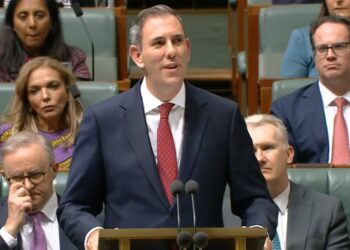On Thursday, Minister for Financial Services Stephen Jones announced substantial alterations to statements of advice (SOAs) as well as modernised best interests duty, but these changes were somewhat eclipsed by the introduction of a new class of advisers.
ifa has revisited and analysed Mr Jones’ speech, extracting all the key references to SOAs and best interests duty.
In essence, the minister said on Thursday that the revamped SOAs will adopt a “principles-based advice record” approach. This signifies a departure from the current extensive SOAs to a more succinct and transparent format, offering “helpful information in plain English”.
The new SOA must, however, meet certain requirements by addressing four key principles: the subject matter/scope, the advice – such as product recommendations and strategies, the reasons for the advice, and the cost of advice to the client and/or benefits received by the adviser.
The minister clarified that the obligation to provide a record to the client will be maintained, while adviser record-keeping obligations will be updated. The focus is on making sure important information that guides the advice is included, without overwhelming clients with unnecessary details that might confuse them when making decisions.
“The record must be clear, concise, and effective, and actually help the clients make an informed decision about the advice they have received,” the minister said.
“It sounds pretty straightforward, doesn’t it?”
According to the minister, the new-look SOA will improve “the value and the quality of advice, while reducing the cost”.
Speaking to ifa, Philip Anderson, general manager of the Financial Advice Association Australia, said the new-look SOA is a “much-standardised set of requirements” that shouldn’t be “100 pages” long, with the emphasis placed firmly on what the client needs to understand the advice provided, and not on what the provider needs to minimise their legal exposure.
“That’s a very important thing.”
Best interests revamp
Second, the minister said the government intends to modernise the best interests duty, mandating advisers to prioritise the best interests of their clients, maintain the requirement for advice to be suitable and purposeful, and instruct advisers to prioritise their client’s interests in the presence of potential conflicts.
This modernised framework will be applicable to all advice providers, encompassing professional advisers, qualified advisers, and digital advice providers.
The updated standard will provide clearer legislative support for scaled or limited-scope advice where this meets the client’s objectives and needs, and for advice where the advice provider has limited, but relevant, information.
“This will require advisers to continue to focus on what is best for their clients,” Minister Jones said on Thursday.
“It will maintain the requirement for advisers to give priority to their clients’ interests where there may be a conflict and it will retain the necessity for the advice to be appropriate.”
Mr Jones added that this will ensure advisers do not prioritise their interests or their employers’, giving consumers a higher level of confidence.
Moreover, as announced in June 2023, the existing best interests duty “safe harbour” steps will be removed, while the requirement to provide appropriate advice will be retained.
“All of this will reduce the red tape burden on advisers and should lead to a reduction in cost,” the minister said.




There will be zero simplification of SoAs from this and if anything a RISE in costs because they are making yet another change to how advice is to be delivered, but no meaningful reduction in Adviser obligations or administrative burden.
“The record must be clear, concise, and effective, and actually help the clients make an informed decision about the advice they have received,” the minister said.
He hasn’t even changed the words used to explain an SOA.
Yep-still a lawyer’s picnic. That is, the lawyers over at ASIC, the lawyers who advise AFSL’s, the lawyers at AFCA and those at the PI insurer’s.
Oh sorry, I forgot – apparently Mr Jones has a law degree. Or is that just an arts law degree?
ASICs fingers are all over these words and it appears they been giving policy advice instead of being a mere regulator of legislation